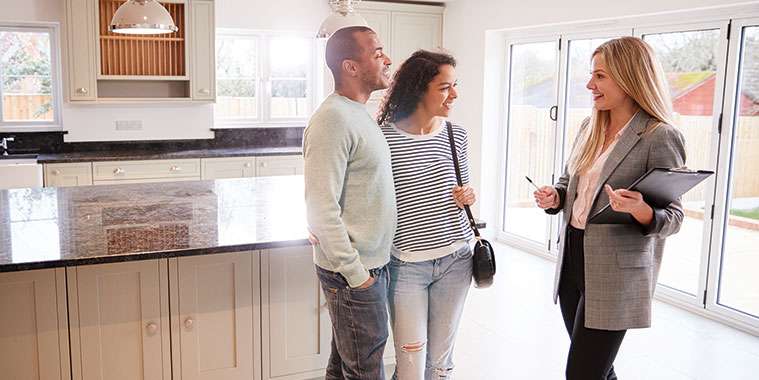Signing on the dotted line for your first home is an unforgettable moment, but the journey to homeownership, financially speaking, isn’t as straightforward as one might think.
Buying a home is filled with all kinds of new costs, responsibilities and financial lessons an inexperienced buyer might not be aware of. For many first-time home buyers, it can be a steep learning curve to understand all of the expenses involved when transitioning from renting or living at home to homeownership.
Certified Financial Planner and Ontario Certified Teacher Elisabeth (Liz) Schieck from the New School of Finance shares a few crucial budgeting strategies all first-time home buyers should know.
Automate your down payment savings
When saving for a down payment, buyers tend to fall into one of two camps—you’re either renting or living at home with smaller or no rental payments. Should you have the means to save aggressively, Schieck recommends setting up your banking so savings are automatically withdrawn from each paycheque. That way, you’ll be less likely to dip into them.
She also advises monitoring how much you’re saving each month to determine if it’s too much or too little and adjusting if needed. You can use this opportunity to learn how much spending is required to buy your essentials and have a life beyond reaching your savings goals, while automatically putting money away.
“The goal is not to be on the most restrictive budget possible,” says Schieck. “The goal is to figure out how much you can save and build up savings.”
It can be harder to put away a sizable chunk of savings when you’re renting, though Schieck says hopeful buyers shouldn’t be discouraged or be too hard on themselves. Even automating your bank account to tuck away a small amount each month is better than nothing, and you can increase those monthly savings when you’re able to.
Calculate what you can afford
Before you head out shopping, it’s important to know how much house your budget will allow for.
Getting pre-approved for a mortgage loan is a good first step to determining what properties may be in your price range. Lenders will look at your income and credit history when determining your pre-approval loan. Most of us carry some debt, such as student loans, which the mortgage lender will also take into account, Schieck says.
She also explains a pre-approved mortgage might be higher than what a buyer can actually afford to sustain the life they want.
“Don’t take that mortgage pre-approval as that’s the absolute truth for you and for everyone else,” explains Schieck. “Dig into it a little bit more with a planner or on your own to really run the numbers and think about what that would look like.”
Schieck encourages new buyers to sit down with an advice-only financial planner who can examine your finances in detail and discuss if your mortgage pre-approval will align with your future finance goals and lifestyle.
Think about the future
When house hunting, new buyers are willing to pull out all the stops to save money, like cutting back on eating out and limiting vacation time. However, your current savings-mode budget shouldn’t reflect your long-term financial plan, explains Schieck. It’s important to consider the future lifestyle that you want, and how your homeownership budget will accommodate that.
“That is often quite doable for people, but most people don’t want to never have fun again for the rest of their life [or] for the next 25 or 30 years, and that’s when people are house poor,” Schieck explains.
When crafting your future homeownership budget, examine your spending habits thoroughly, as well as other potential financial changes like childcare and maternity leave expenses. You can at least run the numbers for your future and adjust the house price that you should be looking at, if needed.
Don’t forget to save for other expenses
While all of the financial emphasis in home buying can fall on the down payment and mortgage, it’s vital to remember there are additional costs.
Schieck says home buyers should build an homeownership budget where money can be set aside each month for repairs and maintenance, about $4,000 to $6,000 a year.
Don’t forget to have cash saved up for closing expenses during the sales transaction, like legal fees and property inspections. Buyers might expect to pay upwards of $5,000 in closing fees before other expenses, such as land transfers taxes, and moving and furnishing costs.
Once you’ve got your financial ducks in a row, recruiting the help of an experienced REALTOR® is the next step to making your homeownership dream a reality.
For any first-time home buyer,
REALTORS® are an important guiding hand throughout the sale and home search process. With their knowledge of mortgages, budgets and all home buying affairs, a REALTOR® plays a critical, supportive role in making sure that your future home fits your financial needs.
— Realtor.ca



